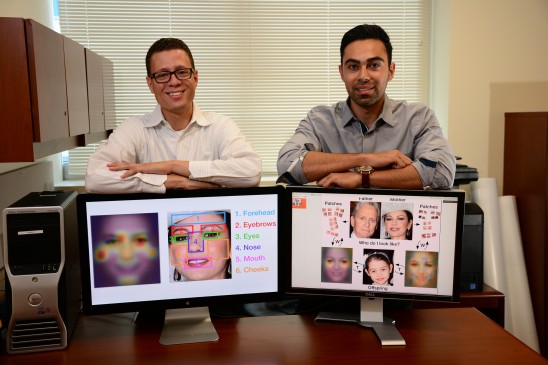
A new computer tool capable of recognizing facial parts has been developed in order to help law enforcement teams locate missing children. The tool works by determining the child's resemblance to his/her biological parents.
Researchers from University of Central Florida (UCF) have developed the computerized facial recognition tool that has the ability to match photographs of missing children to their parents.
"We wanted to see whether a machine could answer questions, such as 'Do children resemble their parents' or 'what parts of the face are more genetically inspired'," said Afshin Dehfghan, lead researcher of the study from University of Central Florida, in a news release.
The project , that started with more than 10,000 online pictures of renowned parents and their offspring, is also equipped in matching looks of missing children with relatives and even identifying them as they grow older.
"The tool could potentially be used to identify long-time missing children as they mature. As this tool is developed I could see it being used to identify long-time missing children as they mature," said Ross Wolf, the associate dean UCF's college of health and public affairs and an associate professor of criminal justice and a law enforcement officer for more than 23 years.
Facial recognition technology has been in use by law enforcement agencies since long but the new tool has upgraded features where it can indentify similar characteristics in pictures, explained Wolf. It is also capable of finding not so significant features such as the chin, left eye and parts of the forehead.
The researchers designed an algorithm to focus on certain features and converted the images into a checkerboard of patches, from which they extracted minute snapshots of the most significant facial parts.The researchers are planning to further expand the work in areas such as age and ethnicity that resemble the facial features.
The study affirmed that around 63 percent of sons resemble their fathers more than their mothers and 82 percent of the daughters bear similar facial resemblance to their mothers, thereby making it easier for the tool to identify the children.
"Machines can learn through time. When a computer goes through thousands of images it knows what it has seen and is able to tell you," said Dehghan.
Technology has advanced to such a level that computer scientists are capable of using advanced tools based on findings from conventional scientific fields, according to Mubarak Shah, director of the UCF center and one of the world's leading authorities in the upcoming field of computer vision.
Other members of the project include Enrique Ortiz, a graduate of the center, and Ruben Villegas, ex-student of UCF and Ph.D. scholar at the University of Michigan.
The technology could also be helpful in other fields such as homeland security, where technology can be used by authorities to determine associations between terrorists, explained Shah.















